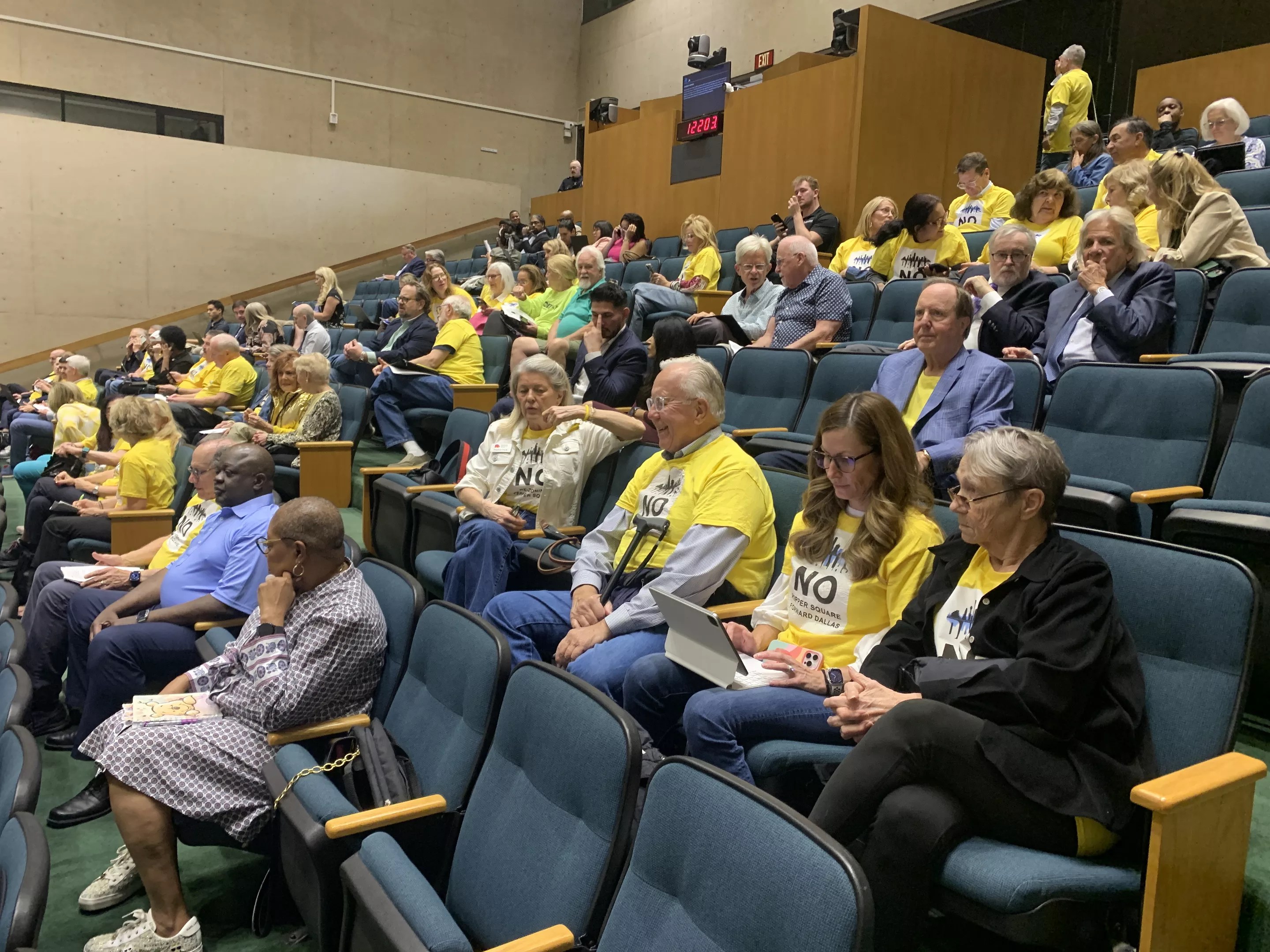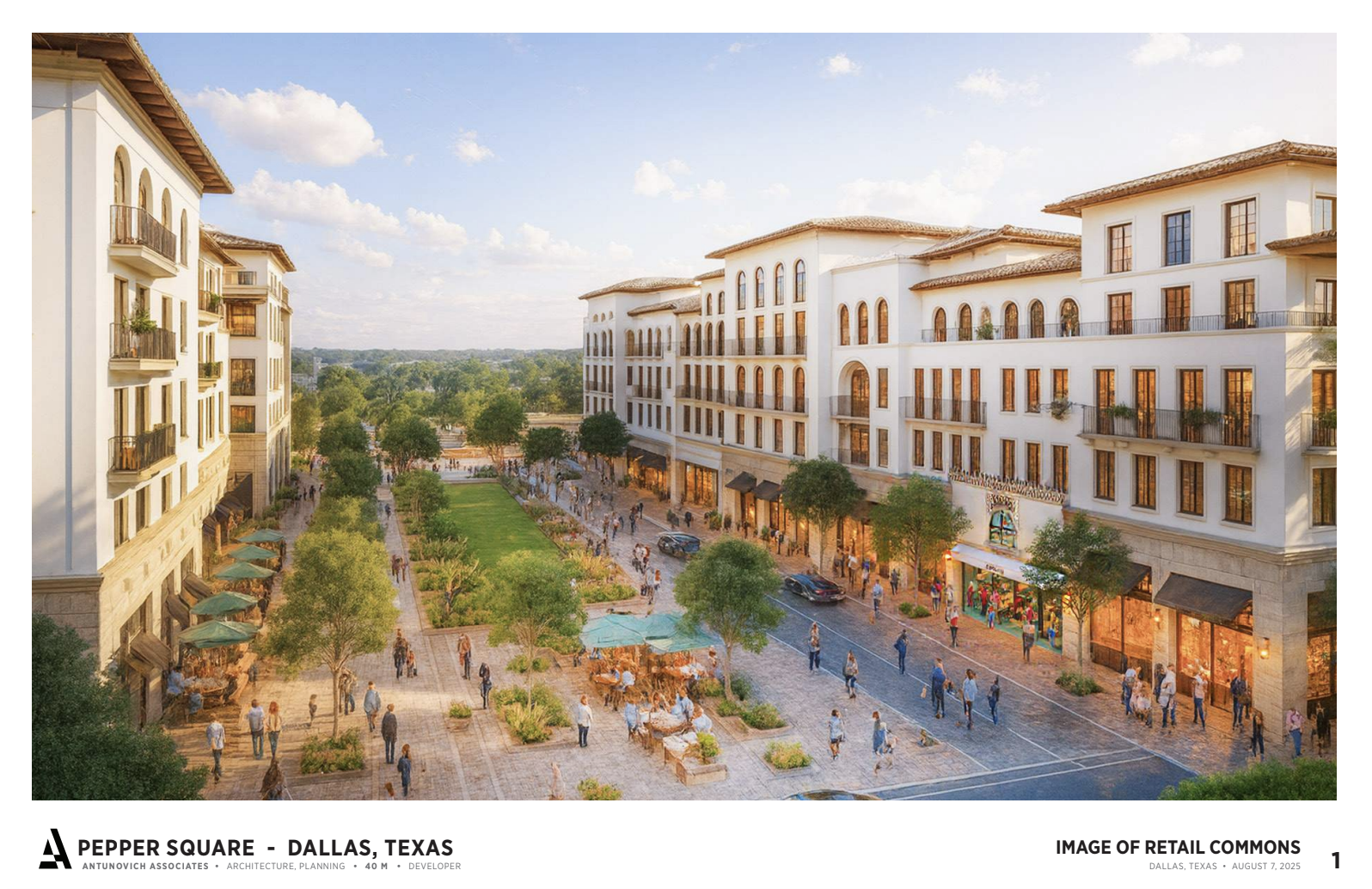
Emma Ruby

Audio By Carbonatix
A coalition of Far North Dallas neighbors has dropped a lawsuit against the city of Dallas and local developer Henry S. Miller Companies. They say that a new development law passed in the state Legislature in June became a “nuclear bomb” to their legal resistance to the planned redevelopment of the Pepper Square shopping center.
Matt Bach, leader of the Save Pepper Square Neighborhood Association, which filed the lawsuit, said the decision to voluntarily “non-suit” the case came after a failed attempt at court mediation between the parties. The Pepper Square redevelopment case was passed by the Dallas City Council in a vote of 10-4 in March, clearing the way for an old shopping center to be revamped into around 870 housing units, much to the ire of some residents.
The subsequent lawsuit, which was filed in April, accused the city of spot zoning, an illegal practice in which a land use deemed inconsistent or incompatible with the surrounding area is granted to a small zone, generally to the benefit of a single property owner. While Pepper Square’s “Community Mixed-Use” designation was consistent with two adjoining tracts of land, neighbors argued that nearby residential neighborhoods should have made the parcel ineligible for dense housing development.
All of that went out the window, though, this past June, when Senate Bill 840 was passed into law. The law will allow commercially zoned areas to be turned into mixed-use and multi-family developments by right.
When news happens, Dallas Observer is there —
Your support strengthens our coverage.
We’re aiming to raise $30,000 by December 31, so we can continue covering what matters most to you. If the Dallas Observer matters to you, please take action and contribute today, so when news happens, our reporters can be there.
“That kind of cut the legs out from under our legal efforts,” Bach told the Observer. “It blew everything else out of the water. We’re hoping [SB 840] might be challenged, but so far, that hasn’t happened.”
The city of Dallas and Henry S. Miller Companies could not be immediately reached for comment.

Neighbors attempted to present a 650-unit design to developer Greg Miller during mediation.
Save Pepper Square Neighborhood Association
According to the neighborhood alliance, there was a short-lived court mediation between neighbors and Henry S. Miller Companies over the summer in which neighbors presented an alternative design concept that would “bridge perspectives of the neighborhood and the developer.” Bach said that while the mediation was President and CEO Greg Miller’s first time seeing the designs, Bach was disappointed that the developer was not more receptive to the plans, which included 650 residential units.
In deciding not to pursue further litigation, the neighborhood association said it hopes to rebuild a working relationship with the developer.
While Monday’s decision may finally mark a close to one of Dallas’ most contentious development cases in years, Bach said the legacy of community involvement that the project inspired will continue.
“It’s more than just a silver lining; it’s sort of the victory. We’ve shown that neighborhoods, when they band together, have much more clout than what was previously imagined,” Bach said. “It’s a case study of what a neighborhood can do when they come together and fight as a single entity.”